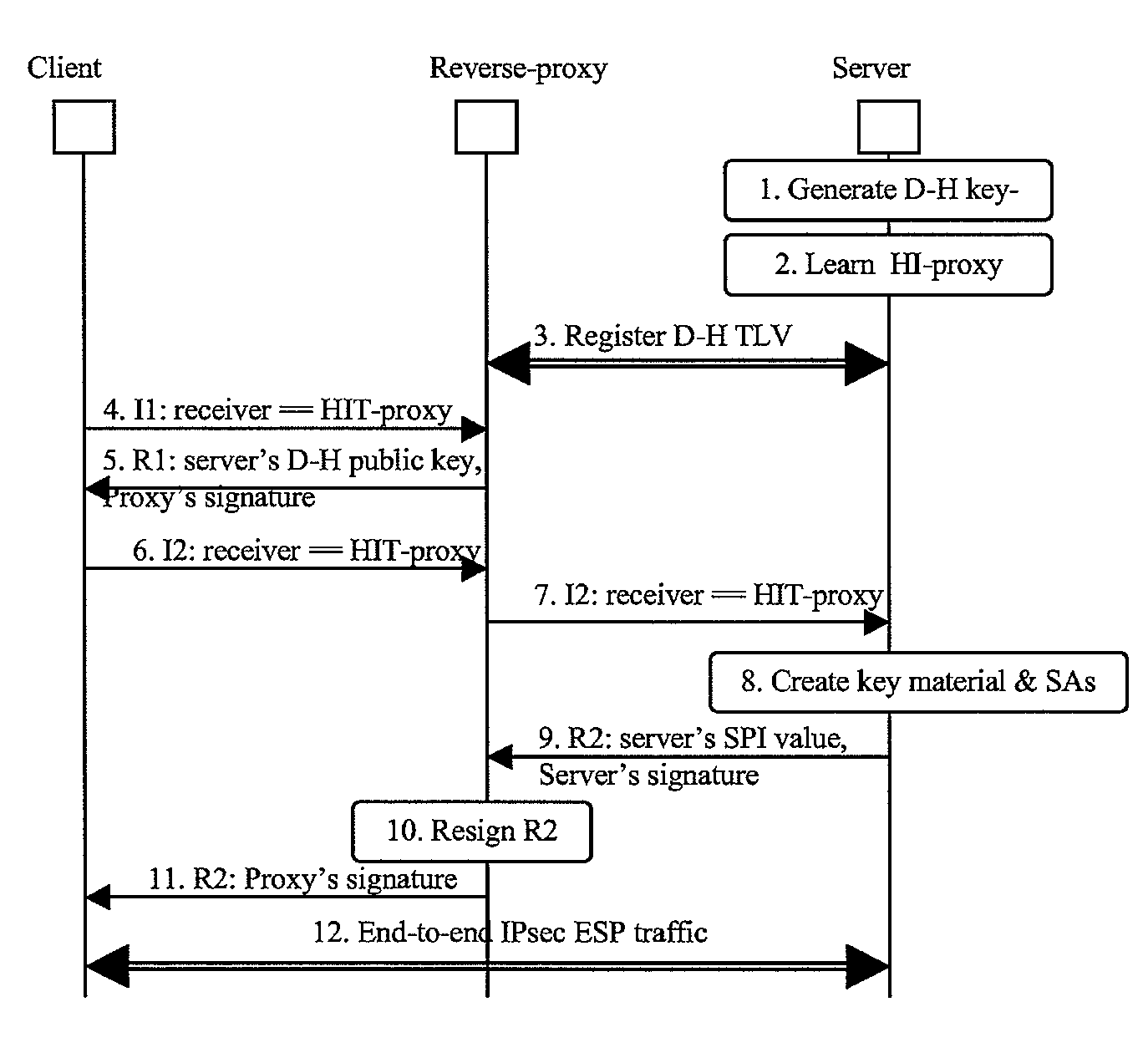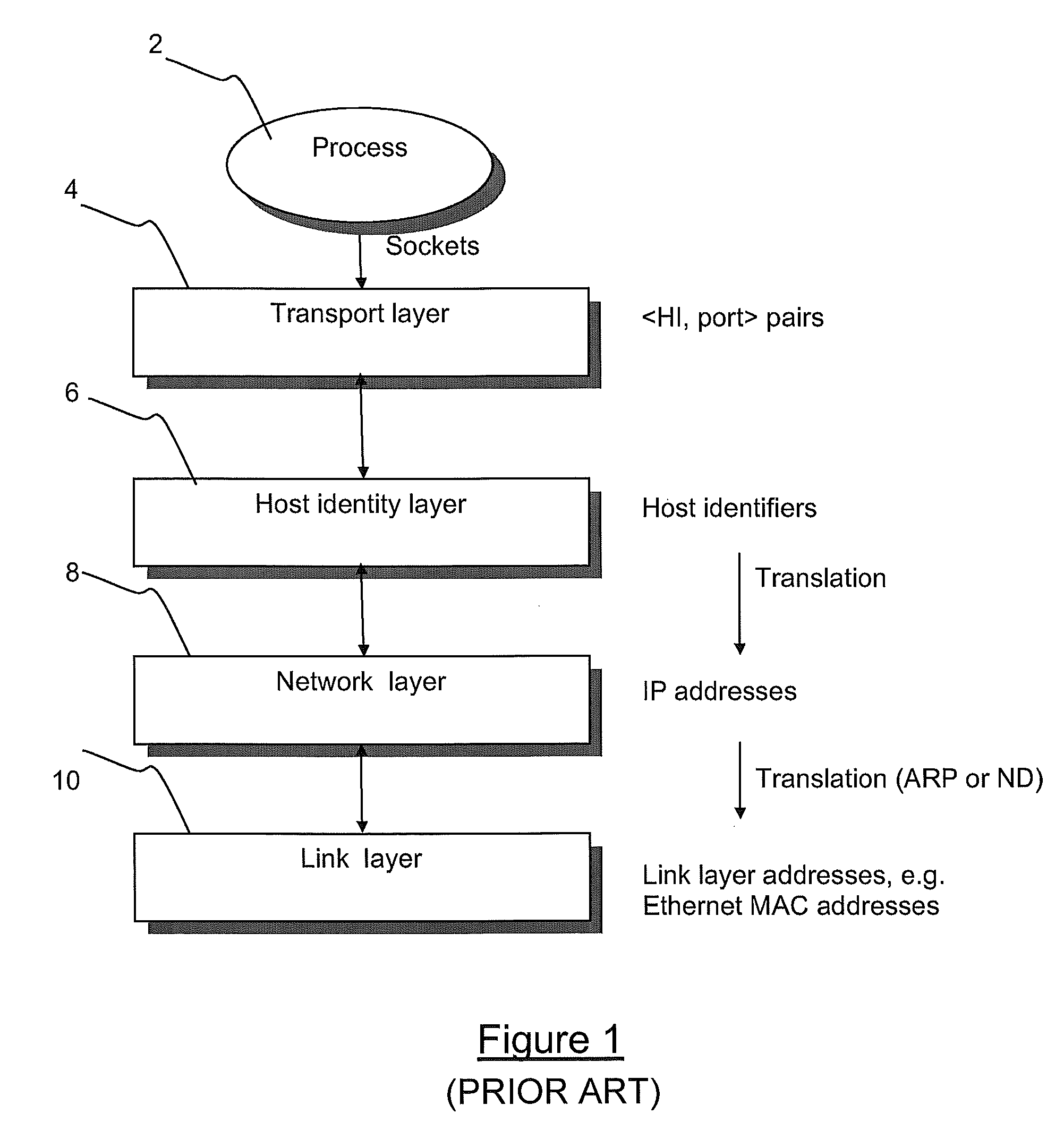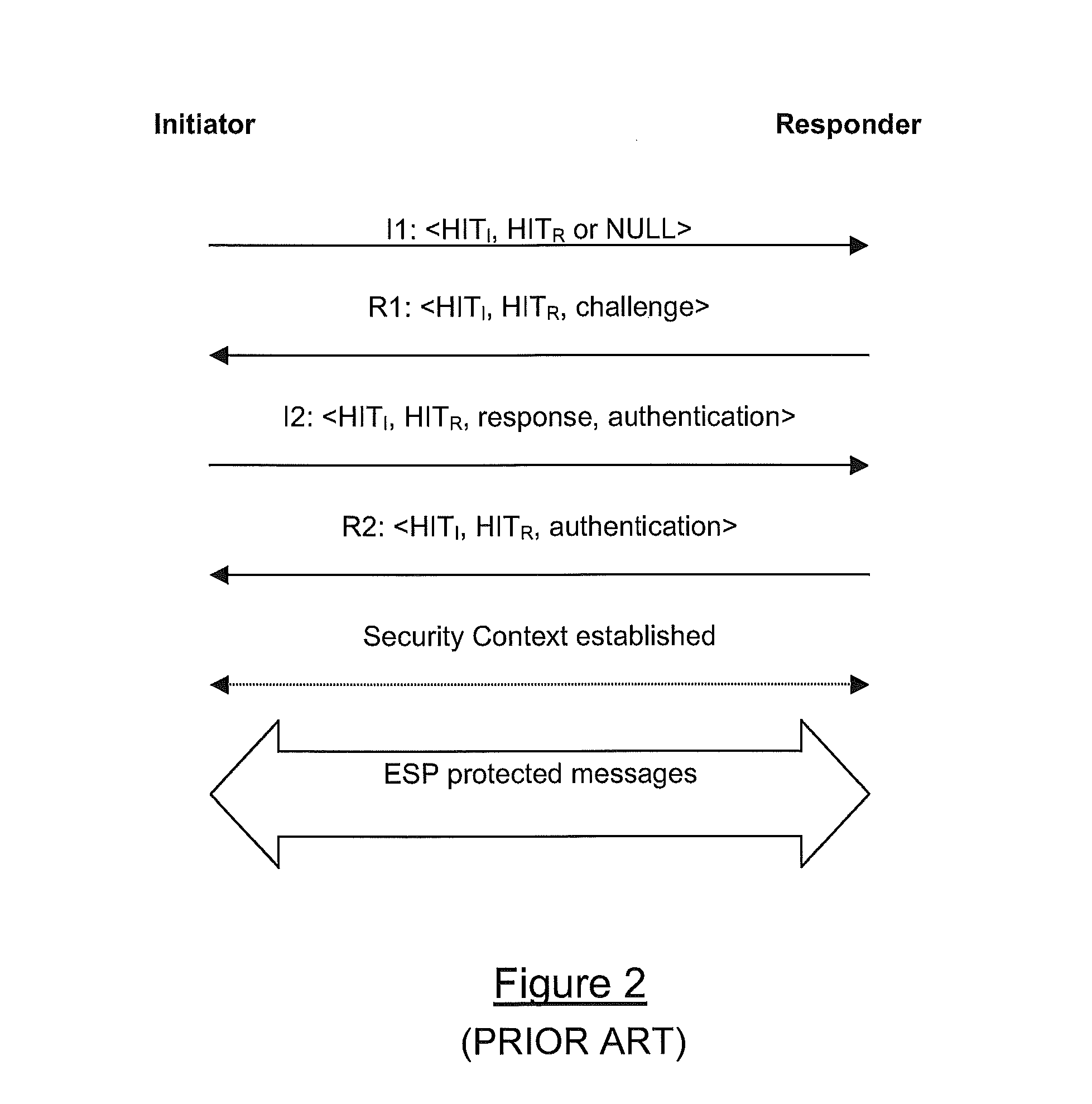Addressing and routing mechanism for web server clusters
a clustering and routing mechanism technology, applied in the direction of securing communication, digital transmission, user identity/authority verification, etc., can solve the problems of difficult management and not scalable solutions
- Summary
- Abstract
- Description
- Claims
- Application Information
AI Technical Summary
Benefits of technology
Problems solved by technology
Method used
Image
Examples
Embodiment Construction
[0046]The following is an outline of a procedure for using HIP in the context of a web farm as illustrated in FIG. 4.
[0047]During an initialization phase, when a new web server is setup in the server farm of the private network, the new server generates its own public and private keys. Thus it gets its own Host Identity. It needs also Diffie-Hellman key material that will be used later to generate a shared secret with a peer node during the HIP Base Exchange. The new server generates the private part (D-H-private) and the public part (D-H-public). The web server registers to the server farm's trusted reverse-proxy and sends the D-H-public value to the reverse-proxy. The reverse-proxy generates an R1 packet, containing the D-H-public value of the server, and signs it with its own HI private key. The reverse-proxy thus maintains multiple R1 packets, (at least) one for each of the server nodes in the server farm. This situation is illustrated in FIG. 5.
[0048]When a client outside of th...
PUM
 Login to View More
Login to View More Abstract
Description
Claims
Application Information
 Login to View More
Login to View More - R&D
- Intellectual Property
- Life Sciences
- Materials
- Tech Scout
- Unparalleled Data Quality
- Higher Quality Content
- 60% Fewer Hallucinations
Browse by: Latest US Patents, China's latest patents, Technical Efficacy Thesaurus, Application Domain, Technology Topic, Popular Technical Reports.
© 2025 PatSnap. All rights reserved.Legal|Privacy policy|Modern Slavery Act Transparency Statement|Sitemap|About US| Contact US: help@patsnap.com



